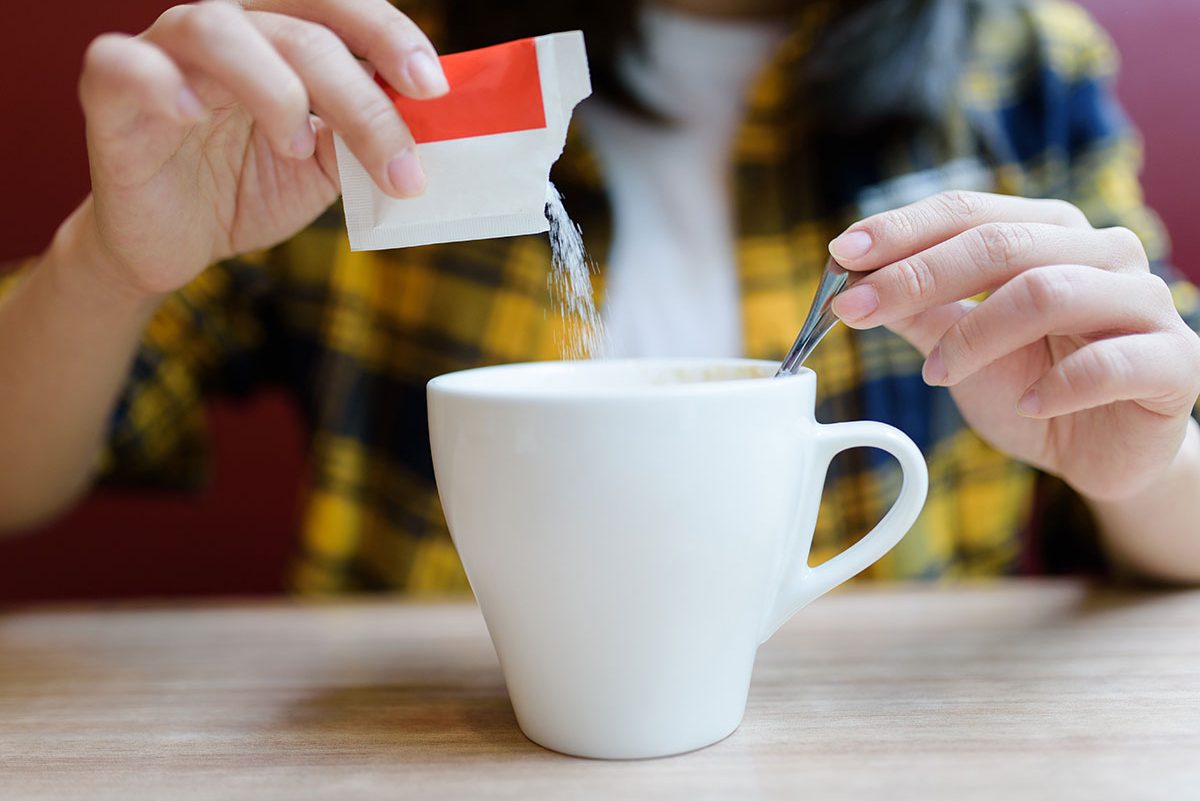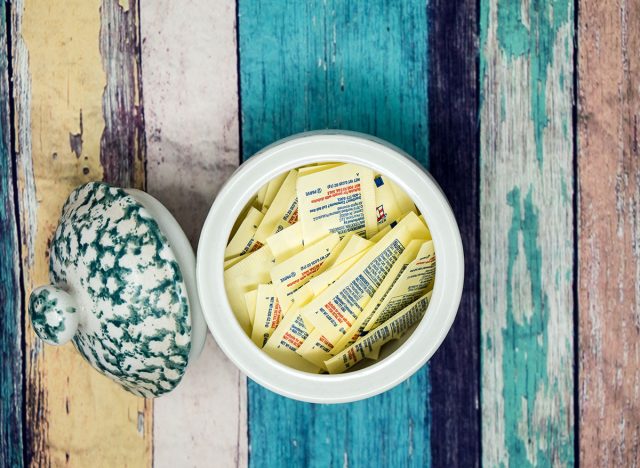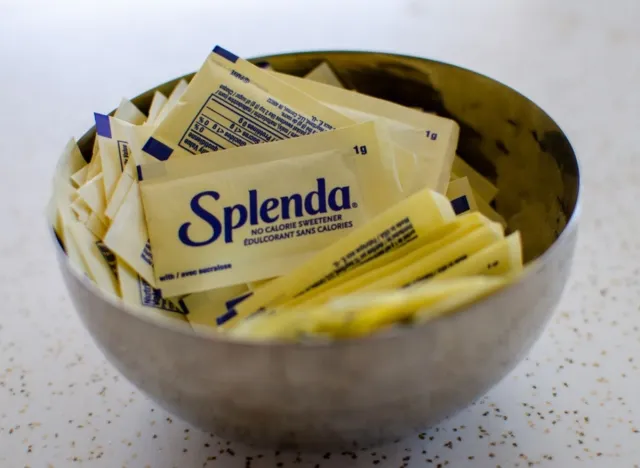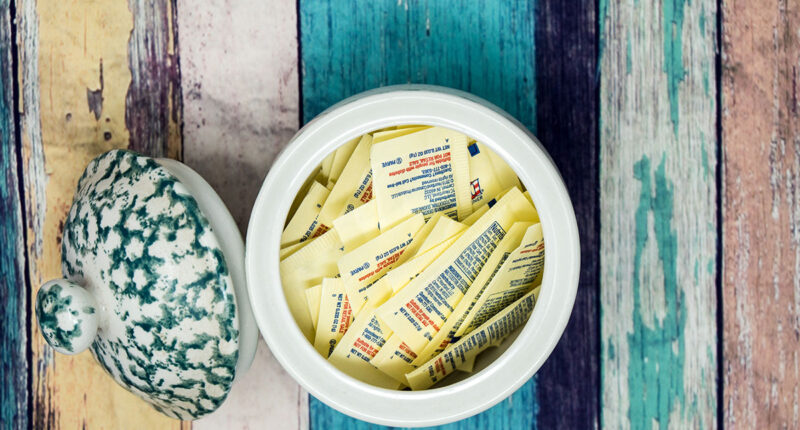What Is Sucralose? And Why It’s in Your Food – Sucralose, also known as Splenda, is a zero-calorie sugar substitute sweetener, and it is intensely sweet, almost 600 times as sweet as sugar. The FDA first approved sucralose for use as a general-purpose sweetener in 1999, and it’s been popular ever since. However, there’s been much controversy over this nonnutritive sweetener (NNS). In fact, recent research reveals the potential added danger associated with consuming sucralose. Given these revelations, more people are wondering if this sweetener is worth using at all.

What is sucralose?
If you’ve ever scrutinized the ingredient lists on the food you consume, at some point, you’ve probably come across sucralose. Sucralose is a white, odorless, water-soluble artificial sweetener commonly used in “sugar-free” and “zero-calorie” foods and beverages. According to the FDA, it is 600 times sweeter than table sugar and exceptionally stable, so foods made with sucralose remain sweet under a wide range of conditions and temperatures.
Sugar-free foods such as frozen desserts, canned fruits, condiments, salad dressings, chewing gum, baked goods, and beverages often contain sucralose. Its use as a substitute for table sugar makes it popular among dieters and those monitoring their sugar intake, especially if they’re looking for zero-calorie sweeteners.
How is sucralose made?
Sucralose is not sugar, but it does start off as such. The patented sucralose manufacturing process contains multiple steps. To create this semi-synthetic sweetener, three hydroxyl groups within the sugar molecule are selectively substituted for three chlorine atoms. This molecular change results in the super sweet, zero-calorie, powdered sweetener we know as sucralose.
How does the human body process sucralose?
The human body does not recognize the sucralose structure as regular sugar, so it is not stored or metabolized as such. Instead, sucralose is excreted in the feces, unchanged, and a small amount is absorbed and rapidly eliminated in the urine. Studies indicate that sucralose can be passed on by nursing mothers in their breast milk. This fact gives reason to believe that sucralose lingers around in the body’s adipose (fat) tissue long after its excretion.
Why is sucralose controversial?

Sugar is an ingredient most people avoid when dieting, so low-calorie sugar substitutes naturally sound like the perfect alternative, right? But sucralose, like other artificial sweeteners, is highly controversial. The FDA has reportedly reviewed over 110 safety studies on sucralose. These studies focused on toxicity, including adverse effects on neurological and reproductive systems. Because none of these adverse effects were found in sucralose, the FDA approved it for consumption as a general-purpose sweetener. Despite this approval, sucralose consumption still merits cause for pause, especially when you consider the implications of more recent research.
The results of one 2015 study suggested that increased sucralose consumption could possibly lead to metabolic disorders. More recently, a study published in the Journal of Toxicology and Environmental Health found that sucralose contains a chemical that may break up the DNA of your cells that are exposed to this sweetener, making it what is known as a “genotoxic substance.” According to the study’s researchers, the European Food Safety Authority set a proposed limit for consuming genotoxic substances daily, which comes in at 0.15 micrograms. However, just one regular-sized sucralose-sweetened drink reportedly exceeds this threshold. Upon further analysis, researchers also discovered that sucralose can negatively impact your gut health. The reason? The chemicals in this sweetener can damage the lining of your gut, making it more permeable and “leaky.”
As you can see, between these research findings and the fact that the FDA has still deemed sucralose as “safe,” there is much controversy on whether or not people should still choose to include this zero-calorie sweetener in their diet. Based on these findings, some dietitians suggest steering clear of it altogether if you can.
“I’d suggest avoiding sucralose, as this new research and emerging science says it may damage our DNA, alter gut health, and have unfavorable health effects, including increasing our risk of chronic disease,” says Lisa Young, PhD, RDN, author of Finally Full, Finally Slim and member of our Medical Expert Board.
Does sucralose cause weight gain?
Zero-calorie sweeteners are popular among dieters, but the answer to whether or not these NNSs actually help with weight loss is still unresolved. Some studies found no link between low-calorie sweeteners and weight gain, while others have seen an interesting increase in brain activity supporting the neurological triggers responsible for food cravings and appetite. According to this 2021 JAMA Network Open study assessing the correlation between NNS consumption and appetite, there was a notable increase in food cravings and hunger in participants who consumed sucralose-sweetened drinks compared to those who drank beverages sweetened with natural sugar.
Earlier this month, World Health Organization (WHO) also released a new advisory pertaining to sucralose consumption relative to weight gain. These new WHO guidelines, which are based on a systematic review of the currently available evidence regarding the effects of NNS products like Stevia, aspartame, and Splenda (aka brand-name sucralose), claim that these zero-calorie sweeteners likely won’t facilitate weight loss in any meaningful way. Furthermore, they may increase your risk of developing chronic health conditions like type 2 diabetes and cardiovascular disease.
Does sucralose make you crave sugar?
It is said that sugar is addictive—and this might just be the case with artificial sweeteners, too. Sugar substitutes may be related to changes in gut bacteria that lead to the storage of fat. A review published in the Yale Journal of Biology and Medicine indicates that artificial sweeteners do not activate the reward pathways as natural sweeteners do. On the other hand, artificial sweeteners such as sucralose can encourage sugar dependence and cravings solely because they taste sweet.
Does consuming it affect blood sugar?
When you eat natural sugar, your body releases insulin to stabilize your blood sugar levels. Alternatively, it is thought that sugar substitutes don’t raise insulin or blood sugar levels in healthy people. But, one study found something different. In this study published in Diabetes Care, the blood sugar and insulin levels in obese people were raised when they consumed sucralose. In more recent studies, sucralose increased the insulin response to sugar when taken ten minutes before glucose. The body’s insulin response to sweeteners is something that requires more research. Overall, more studies are needed to know the effects of sucralose on blood sugar.
Which products contain this artificial sweetener?
Sucralose is readily available in many pre-packaged items on store shelves. Since this artificial sweetener is very stable, it is found in various food and drink items. These products include:
- Diet sodas
- Chewing gum
- Sugar-free gelatin
- Salad dressings
- Maple syrup alternatives
- Flavored coffee syrups
- Barbecue sauces
- Sugar-free jams and fruit spreads
- Baked goods
- Sugar-free candy
- Frozen desserts
- Condiments labeled “sugar-free” or “low-calorie” most often contain sucralose.
The bottom line

Sucralose is a controversial sweetener that can potentially affect insulin and glycemic responses, metabolism, and cravings. Science has raised concerns over it, and new studies and guidelines from various health organizations show even more potential impacts that this sweetener can have on your health. It is essential to remain aware of your sugar intake from all food sources, read labels, and consider alternatives to sucralose and other chemically altered sweeteners when trying to satisfy your sweet tooth.
Don’t miss: 8 Breakfast Habits Wreaking Havoc on Your Body









